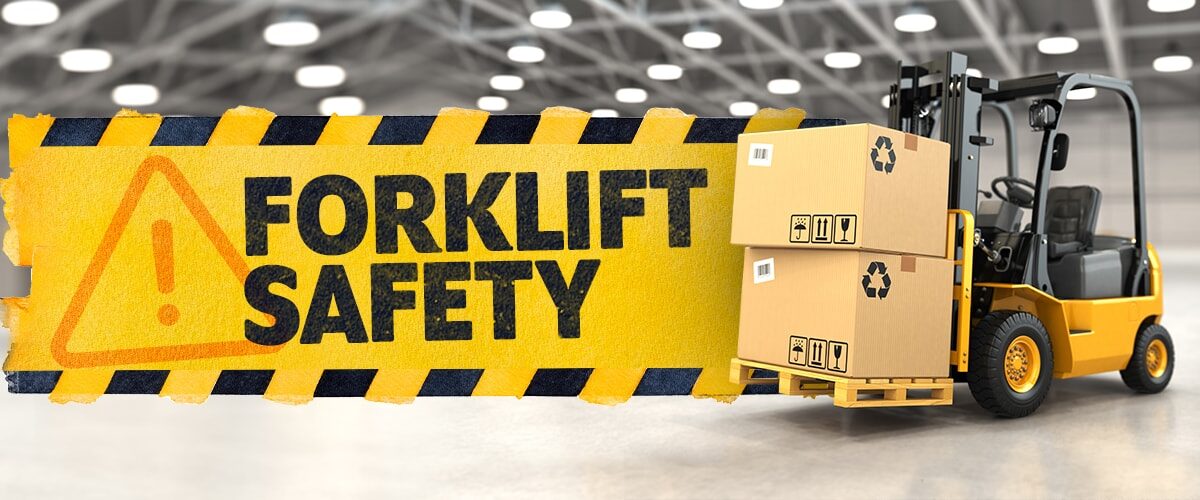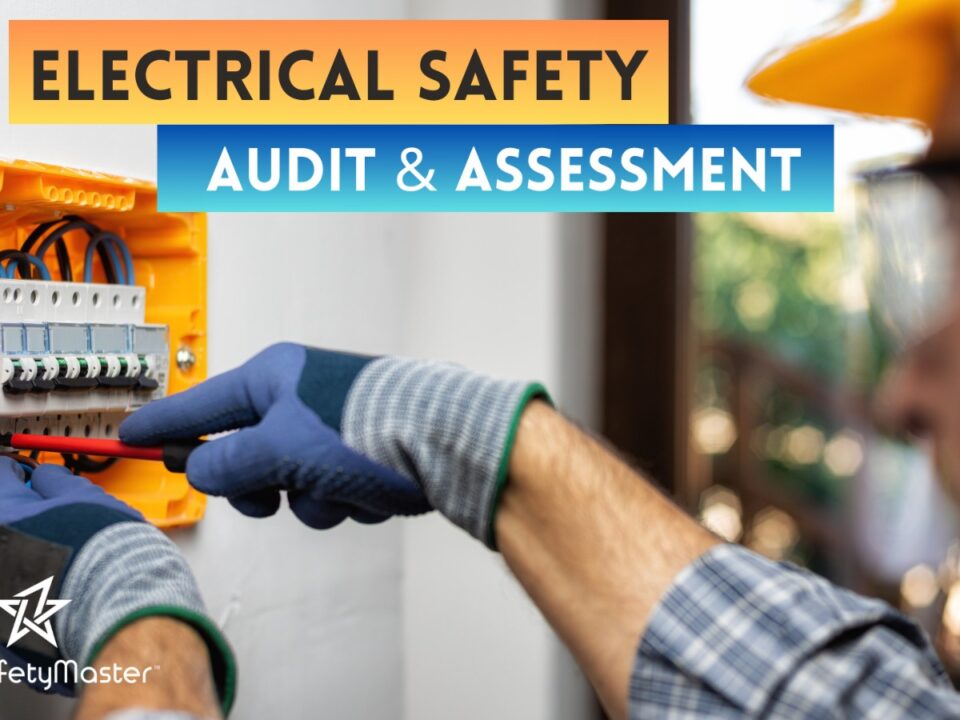Reducing Risk, Ensuring Success: Prioritizing Forklift Safety Training in India

Protecting Lives and Assets: How Electrical Safety Training Saves Businesses from Disasters
October 5, 2023
Mitigating Fire Risks in the Rising Electric Vehicle Manufacturing Sector in India
October 6, 2023In this article, we delve into a pressing concern that demands immediate attention: the need for prioritizing forklift safety training in India. With the escalating number of accidents and incidents related to forklift operations, it is crucial to address this issue head-on to mitigate risks and ensure a safer working environment. In the following sections, we will explore the gravity of the problem, enlighten you on what to expect from comprehensive safety training programs, and most importantly, promise a positive shift towards enhanced forklift safety standards in the industrial landscape of India. Stay tuned to discover the key to reducing risks and fostering success through expert training.
Introduction
Reducing Risk, Ensuring Success: Prioritizing Forklift Safety Training in India. In today’s fast-paced industrial landscape, the importance of workplace safety cannot be overstated. Among the various hazards present in workplaces, forklift operations pose a significant risk if not properly managed. India, with its booming manufacturing and logistics sectors, is no exception to this concern
Importance of Forklift Safety Training in India
The safety of personnel operating forklifts in India is of paramount importance. Forklifts are powerful machines utilized in a variety of industries, but their operation can pose significant risks if not handled with proper care and expertise. This makes it imperative to prioritize forklift safety training in India, as it empowers workers with the knowledge and skills necessary to mitigate potential hazards. Forklift safety training plays a crucial role in fostering a culture of safety within workplaces across the country. It helps workers understand the potential risks associated with forklift operations and equips them with essential techniques to prevent accidents. By emphasizing the importance of following safety protocols, this training instills a sense of responsibility and caution among operators, leading to a safer working environment overall.
Investing in forklift safety training not only ensures compliance with legal requirements but also demonstrates an employer’s commitment towards employee well-being. By prioritizing the safety of their workforce, employers foster trust and loyalty amongst employees. Moreover, by reducing the likelihood of accidents, companies can avoid costly litigation expenses and maintain productivity levels unabated. Overall, by investing in comprehensive forklift safety training programs, businesses create a positive work environment that prioritizes both efficiency and employee welfare.
Understanding the Risks Associated with Forklift Operations
The operation of forklifts in the Indian workplace carries inherent risks that demand our utmost attention. These powerful machines, capable of lifting heavy loads with ease, can also pose serious dangers if not operated with caution and expertise. One must understand the specific risks associated with forklift operations to appreciate the need for comprehensive safety training. Forklift accidents can result in severe injuries, property damage, and even fatalities. The risks stem from a variety of factors: instability of loads, improper turning or maneuvering, limited visibility due to large loads obstructing the driver’s view, and inadequate maintenance leading to mechanical failures. Additionally, uneven or cluttered surfaces may create hazards that further amplify the likelihood of accidents.
However, understanding these risks is just the first step towards creating a safer working environment. By recognizing that each risk presents an opportunity for improvement and implementing effective training programs targeted at addressing these specific dangers, we can significantly reduce the likelihood of accidents. Together, we can ensure that every worker operating a forklift in India receives proper training to mitigate risks and thrive in a secure workplace.
Legal Requirements and Standards for Forklift Safety in India
Legal Requirements and Standards for Forklift Safety in India: In the vibrant tapestry of India, where tradition intertwines with modernity, the safety of forklift operations is a paramount concern. Recognizing this, the Indian government has enacted specific laws and regulations to ensure the protection of workers and promote a culture of safety in industrial settings. The primary legislation governing forklift safety in India is the Factories Act, 1948, which mandates that all factories employing forklift operators must adhere to certain standards to mitigate risks.
Under these legal provisions, employers are obligated to maintain well-defined traffic control measures within their facilities, clearly demarcating pedestrian and vehicular zones. Furthermore, they are required to ensure that only trained operators handle forklifts and that their qualifications align with the guidelines issued by the Directorate General Factory Advice Service & Labour Institutes (DGFASLI). Additionally, regular inspections and maintenance of forklifts are mandated to guarantee their optimal functioning.
India’s commitment to embracing international safety standards is evident through its alignment with ISO 3691-1:2011 – Industrial trucks – Safety requirements and verification. This harmonization allows Indian industries to stay attuned to global best practices while ensuring worker welfare even in an ever-evolving landscape. By adhering strictly to these legal requirements and standards, organizations can create an environment where accidents become a distant memory as productivity soars amidst an atmosphere of safety.
Remember: compliance isn’t just about fulfilling legal obligations; it’s about safeguarding lives and fostering a workplace that nurtures human potential. India’s dedication towards creating a safer tomorrow paves the way for businesses across sectors to thrive while upholding their ethical responsibilities towards their employees
Common Causes of Forklift Accidents in India
Forklift accidents in India stem from a combination of factors, making it crucial to understand the common causes in order to effectively mitigate risks. Firstly, inadequate operator training and lack of awareness about safety protocols play a significant role in these accidents. Without proper knowledge and understanding of forklift operations, operators may unknowingly engage in unsafe practices. Secondly, poor maintenance and faulty equipment contribute to accidents. Inadequate inspections, neglecting regular servicing, and using outdated or malfunctioning forklifts can lead to mechanical failures during operations. These issues not only put the operator at risk but also jeopardize the safety of those working nearby.
Additionally, workplace congestion and improper load handling further exacerbate the risk of accidents. Overloaded or improperly balanced loads increase the likelihood of tip-overs or falling objects, endangering both operators and bystanders. Furthermore, congested work areas with insufficient space for maneuvering make it challenging for operators to navigate safely.
Addressing these common causes requires comprehensive preventive measures that emphasize training programs tailored to Indian conditions. By investing in robust training initiatives that ensure operators are well-informed and equipped to handle challenges specific to Indian workplaces, we can substantially reduce forklift accidents and create safer environments conducive to productivity.
The Role of Effective Training Programs in Reducing Forklift Risks
The Role of Effective Training Programs in Reducing Forklift Risks: Ensuring the safety of forklift operations is paramount in any workplace, and effective training programs play a crucial role in diminishing potential risks. These programs aim to equip operators with the necessary skills and knowledge to navigate through challenging environments and handle unforeseen situations with utmost caution. By instilling a strong safety mindset, training programs empower operators to make informed decisions, assess risks proactively, and respond effectively during critical moments.
An efficient forklift training program goes beyond simply teaching technical aspects; it fosters a culture of safety where every individual involved in forklift operations understands their responsibility towards minimizing risks. Such programs cover comprehensive topics like proper assessment of loads, safe operating procedures, recognizing potential hazards, and implementing preventive measures. By emphasizing continuous learning and practicing best practices, these training programs create a positive ripple effect throughout the organization, resulting in heightened awareness and a collective commitment to safety.
Through effective training initiatives, employers not only fulfil their legal obligations but also optimize operational efficiency. Well-trained forklift operators exhibit improved productivity by efficiently maneuvering equipment while prioritizing safety measures. Furthermore, these programs foster an environment that encourages open communication between operators and management regarding safety concerns or suggestions for improvement. By investing in robust training programs that prioritize risk reduction, employers can ensure the well-being of their workforce while promoting a positive work culture conducive to success.
Benefits of Investing in Forklift Safety Training for Employers
In today’s competitive business landscape, employers must prioritize the safety and well-being of their workforce. Investing in forklift safety training not only demonstrates a commitment to employee welfare but also brings substantial benefits to employers. First and foremost, by providing comprehensive forklift safety training programs, employers can significantly reduce the risk of accidents and injuries in the workplace. This minimizes the potential for costly lawsuits, medical expenses, and damage to company property. Such proactive measures also contribute to a positive reputation for the organization, fostering trust among clients and stakeholders.
Furthermore, an investment in forklift safety training enhances operational efficiency. Well-trained operators are more proficient in handling forklifts, leading to increased productivity levels. By reducing downtime caused by accidents or mishandling incidents, businesses can optimize workflow and achieve higher output targets.
Lastly, prioritizing forklift safety training demonstrates genuine care for employees’ well-being both inside and outside the workplace. This commitment fosters a sense of loyalty among workers, boosting morale and job satisfaction. Employees who feel valued are more likely to be motivated and engaged in their tasks, leading to improved overall performance.
By investing resources into comprehensive forklift safety training programs, employers not only mitigate risks but also create a positive work environment that promotes productivity, employee satisfaction, and long-term success.
Key Components of an Effective Forklift Safety Training Program
Key Components of an Effective Forklift Safety Training Program:1. Comprehensive Curriculum: An effective forklift safety training program should have a comprehensive curriculum that covers all essential aspects of safe forklift operation. This includes theoretical knowledge about equipment functions, hazard identification, proper load handling techniques, and emergency procedures. Practical training sessions should also be included to allow operators to apply their knowledge in real-world scenarios.
2. Qualified Instructors: The success of any training program relies heavily on the expertise and skills of the instructors. A competent forklift safety trainer should possess extensive knowledge and experience in operating forklifts, as well as deep understanding of safety protocols and regulations. Their ability to effectively communicate complex concepts and engage learners is crucial in ensuring successful training outcomes.
3. Hands-On Training: Theory alone is not sufficient to develop proficient forklift operators. Incorporating hands-on training sessions where learners can practice operating the equipment under supervision is vital. This practical experience helps them familiarize themselves with the controls, understand weight distribution, and learn how to maneuver safely in various workplace scenarios.
4. Regular Evaluation: Continuous evaluation is essential to gauge the progress and effectiveness of the training program. Regular assessments such as written tests, practical evaluations, or simulations should be conducted to identify areas needing improvement or additional reinforcement. Feedback from both instructors and trainees can contribute to refining the training content and methods.
5. Ongoing Refresher Courses: Forklift safety training should not be a one-time event but rather an ongoing process aimed at reinforcing safe practices over time. Implementing regular refresher courses ensures that operators stay up-to-date with changing regulations, technology advancements, and best practices in forklift safety
Implementing and Assessing Forklift Safety Training in Indian Workplaces
Implementing and Assessing Forklift Safety Training in Indian Workplaces: One crucial aspect of ensuring the success of forklift safety training in Indian workplaces is the proper implementation and assessment of the training programs. A comprehensive approach needs to be adopted, starting with identifying the specific needs and requirements of each workplace. By conducting thorough assessments, employers can gain valuable insights into the unique challenges and risks associated with their operations.
Once the training programs are designed, it is essential to ensure effective implementation. This involves creating a supportive environment that encourages participation and engagement from both employers and employees. Establishing clear communication channels, providing necessary resources, and setting realistic expectations can significantly contribute to a successful rollout of forklift safety training.
Regular evaluation and assessment are vital to measure the effectiveness of the training programs. Employers should consider implementing practical assessments that simulate real-life situations to test employees’ knowledge, skills, and ability to apply safety protocols in various scenarios. By assessing performance regularly, necessary adjustments can be made to improve ongoing training efforts, leading to a safer working environment for everyone involved.
In conclusion, implementing and assessing forklift safety training in Indian workplaces requires a holistic approach that considers specific workplace requirements. By fostering a culture of safety through effective implementation methods and regular assessments, employers can reinforce positive behaviors while continuously improving their training programs. This not only reduces risks but also instills confidence among employees as they work towards achieving excellence in forklift operations.
Best Practices for Ensuring Continuous Improvement in Forklift Safety Training
Best Practices for Ensuring Continuous Improvement in Forklift Safety Training:To ensure ongoing success in forklift safety training, organizations must embrace a culture of continuous improvement. This involves establishing feedback mechanisms to gather insights from employees and supervisors on the effectiveness of the training programs. Encouraging open dialogue allows for identification of any gaps or areas for improvement, enabling timely adjustments to enhance the overall training experience.
Regular evaluation of training materials and techniques is also paramount. Upgrading instructional materials with engaging visuals, interactive simulations, and real-life case studies can help capture learners’ attention and reinforce key safety concepts. Additionally, leveraging technology such as virtual reality (VR) can offer a more immersive learning experience, allowing operators to practice their skills in a safe yet realistic environment.
Furthermore, fostering a sense of ownership among employees towards safety initiatives is essential. By involving them in the development or review process of safety policies and procedures, individuals feel empowered and invested in promoting a safe working environment. Recognizing and rewarding those who make significant contributions to forklift safety can further motivate others to actively participate, creating a positive cycle where everyone strives for continuous improvement.
By implementing these best practices within their organizations, Indian workplaces can cultivate an environment that consistently enhances forklift safety training initiatives. Not only will this lead to fewer accidents and injuries but also instill confidence among employees that their well-being is valued – ultimately contributing to improved productivity and success.
Conclusion
In the realm of forklift operations, prioritizing safety training is not just a legal obligation, but also a moral responsibility. By investing in comprehensive training programs, employers can significantly reduce the risks associated with forklift accidents and create a safer working environment for their employees. The benefits of such an investment are manifold; not only does it safeguard lives and prevent injuries, but it also enhances operational efficiency and productivity. As we traverse towards a future where safety stands at the forefront of every workplace, let us embrace the power of knowledge and training to ensure success in mitigating risks and fostering a culture of safety.



